Meet Our Team
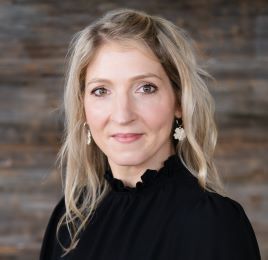
Registry Director
CARRIE MILLIARD, MS, CGC, CCRC
Carrie Milliard joined the FTD Disorders Registry team in July 2023 as Director. She earned a Masters in Genetic Counseling at the University of Cincinnati and is a certified Genetic Counselor and Clinical Research Coordinator. In 2023, Carrie also obtained a certificate in Project Management from Cornell University. Carrie brings more than two decades of clinical research experience gained working in academic, regulatory, and industry settings. A major focus of her past work involved supporting research initiatives to advance therapeutic development for rare genetic diseases including cystic fibrosis and X-linked hypohidrotic ectodermal dysplasia. Most recently, Carrie led clinical research operations at a genetic testing laboratory supporting internal and external research collaborations, data dissemination, and new product development.
As the FTD Disorders Registry Director, Carrie is responsible for leadership, strategy and overall management of the Registry. She will work closely with the Registry President and Registry staff to develop and maintain a Registry that engages and empowers the FTD community, researchers, and Registry partners to facilitate and advance research into the spectrum of FTD disorders.

Communications Manager
Mary Krause
Mary Krause joined the FTD Disorders Registry team in December 2023 as Communications Manager. She earned a B.A. in Communications and English from La Salle University and has over 15 years of experience in communication, marketing, and public relations. Before joining the FTD Disorders Registry, Mary spent over a decade working in the hospice and palliative care industry, delivering comprehensive and empathetic messaging to increase understanding of what to expect when approaching end of life, the value of hospice care, and the support and services available.
In her role as Communications Manager, Mary is responsible for the Registry’s print and digital content for both internal and external audiences, including branded marketing materials, informational handouts, graphics, emails, newsletters, and website content. She also manages the posts on the Registry’s social media channels: Facebook, Twitter, LinkedIn, and YouTube.

IT System Administrator
Robert Reinecker
Robert Reinecker joined the FTD Disorders Registry team in November 2021 as the IT System Administrator. He earned a B.A. degree from The College of New Jersey. He held many positions working in the insurance industry including IT Trainer, Intranet Web Developer, Network Administrator, Manager, and for the past 15 years, Full Stack Developer.
In his role as the IT System Administrator, he is responsible for managing the Registry's hardware, software, and application integrations while monitoring overall system performance to optimize data management and integrity.
MANAGING PARTNER OF THE FTD DISORDERS REGISTRY
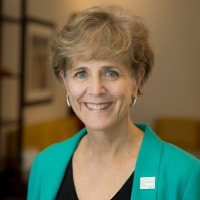
AFTD Chief Executive Officer: Susan Dickinson, MSGC
As CEO of AFTD, Susan has ultimate responsibility for AFTD’s management of the Registry. She has led AFTD as CEO since 2008 and served on the Management Committee of the FTD Disorders Registry from its inception in 2016 to the management transition in 2020 with AFTD as the new managing member.
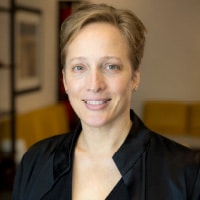
President & Director: Penny Dacks, PhD
As FTDDR President, Dr. Dacks oversees the FTD Disorders Registry and has responsibility for its sustainability and its external strategic relationships and partnerships. She also serves as AFTD’s Senior Director of Scientific Initiatives, where she leads strategy for AFTD’s research initiatives. She brings a decade of experience in biomedical nonprofit management, most recently as Associate Executive Director, Programs at the American Epilepsy Society, overseeing mission-related programs in research, medical education, and clinical activities. Penny trained in neuroscience at the University of Arizona and the Icahn School of Medicine at Mount Sinai.
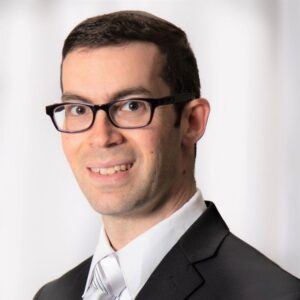
Chief Operating Officer: Mitch Appleson, CPA, MBA
As FTDDR Chief Operating Officer, Mitch brings 15-plus years of knowledge and experience in healthcare administration to help cultivate the Registry's growth. He has served as AFTD COO since March 2022. Mitch has an M.B.A. from St. Joseph’s University and a B.S. in Accounting from Yeshiva University. He earned his CPA license while working at Ernst & Young.
SCIENTIFIC ADVISORY BOARD OF THE FTD DISORDERS REGISTRY
Our Advisory Board is composed of clinician and researcher volunteers from the FTD and dementia community. Each volunteer member is a recognized leader in the fields of FTD disorders, dementia, clinical care, patient registries, and clinical trials.
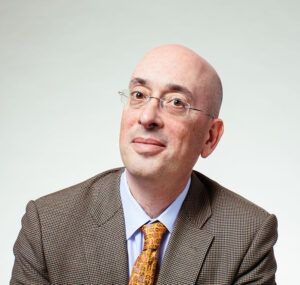
Dr. Adam Boxer, University of California, San Francisco, CA (Chair)
Dr. Boxer received his MD and PhD degrees at New York University Medical Center. He completed an internship in Internal Medicine at California Pacific Medical Center, a residency in Neurology at Stanford University Medical Center, and a fellowship in Behavioral Neurology at UCSF. He is an Associate Professor of Neurology and directs the Alzheimer’s Disease and Frontotemporal Dementia Clinical Trials Program at the Memory and Aging Center. Dr. Boxer, along with Dr. Brad Boeve (Mayo) and Dr. Howard Rosen (UCSF), is a lead investigator for the NIH-funded ALLFTD Study.
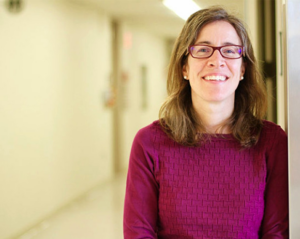
Dr. Elizabeth Finger, Western University, Schulich School of Medicine & Dentistry and St. Joseph's Healthcare, London, ON
Dr. Finger received her MD from Cornell University. She completed an internship in Internal Medicine at Massachusetts General Hospital, followed by residency in Neurology at Massachusetts General Hospital and Brigham and Women's Hospital in Boston, Massachusetts. Dr. Finger completed a clinical research fellowship at the National Institutes of Health in the Unit on Affective and Cognitive Disorders at the NIMH.
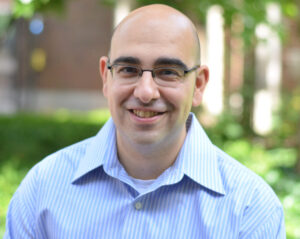
Dr. David Irwin, University of Pennsylvania, Philadelphia, PA
Dr. David Irwin is the co-director of the Penn Frontotemporal Degeneration Center and PI of the Penn Digital Neuropathology Lab at the University of Pennsylvania Perelman School of medicine. He has dual training in cognitive neurology and neuropathology and his lab focuses on integrating human brain histopathology with image analysis methods to integrate fine-grained measures of postmortem neuropathology with antemortem biomarker data, with the overall goal of identifying therapeutic targets and markers of disease progression that can serve as endpoints in treatment trials for FTD, LBD, AD and related neurodegenerative disorders.
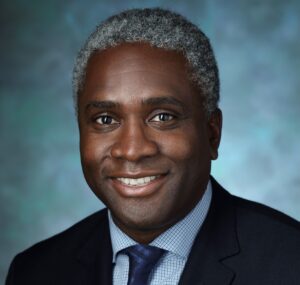
Dr. Chiadi Onyike, Johns Hopkins Hospital, Baltimore, MD
Dr. Onyike received his MBBS (MD) degree from the University of Nigeria, College of Medicine. He completed a residency and fellowship in Psychiatry at Johns Hopkins University School of Medicine. He also obtained an MHS in Clinical Epidemiology from Johns Hopkins Bloomberg School of Public Health. He is an Associate Professor of Psychiatry and Behavioral Science at John Hopkins Hospital and Director of the Frontotemporal Dementia Program.
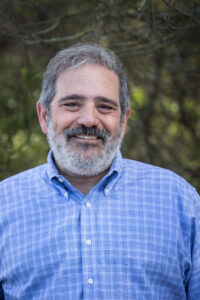
Howie Rosen, University of California, San Francisco, CA
Dr. Rosen is a behavioral neurologist and holds the Dorothy Kirsten French Foundation Endowed Professorship for Parkinsonian and Other Neurodegenerative Disorders. He received his medical degree from Boston University School of Medicine, trained in internal medicine at the Albert Einstein College of Medicine in New York, and subsequently completed a neurology residency at UCSF. After residency, Dr. Rosen pursued fellowship training in brain imaging at the Washington University School of Medicine, and then returned to UCSF to join the team at the Memory and Aging Center (MAC) in 1999.
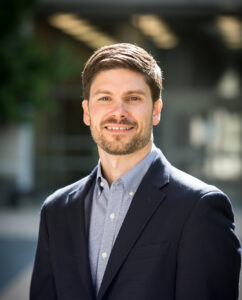
Adam Staffaroni, MD, UCSF Memory and Aging Cente
Dr. Staffaroni is an Associate Professor of Neurology and clinical neuropsychologist at the UCSF Memory and Aging Center, where he completed a fellowship in neuropsychology. The focus of his research is to improve early detection, prognosis, and monitoring in neurodegenerative diseases, particularly frontotemporal dementia. His lab investigates scalable remote data collection methods, including digital health technologies, to help surmount barriers to FTLD clinical trials and enhance sensitivity to the earliest clinical manifestations of FTLD pathology.
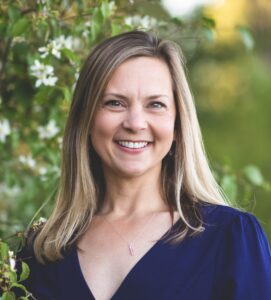
Karmen Trzupek, MS, GCG, Rare-X
Karmen Trzupek is a passionate and innovative leader in rare disease programming, with experience in academia, telemedicine, advocacy, and industry. As the Senior Director of Scientific Programs at Rare-X, Karmen develops collaborative ecosystems and partnerships to maximize the Rare-X data platform for the advancement of patient advocacy groups and industry-supported therapeutic pipelines. Previously, Karmen served as the Director of Clinical Trial Services at InformedDNA, supporting patients with genetic diseases to navigate clinical trial eligibility and enrollment through partnerships between biotech companies, patient advocacy groups, and academic and community clinics. As a clinical genetic counselor, Karmen developed the first nationwide telemedicine program for rare disease genetic counseling and testing, and co-developed the first pharma-sponsored genetic testing program in the US. She holds a B.S. in Microbiology from the University of Illinois and an M.S. in Genetic Counseling from Northwestern University.
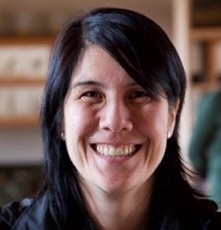
Dr. Anne Marie Wills, CurePSP Center of Care
Anne-Marie Wills MD MPH is the director of the CurePSP Center of Care at Massachusetts General Hospital which provides multidisciplinary care for people with Progressive Supranuclear Palsy. She is a neurologist specializing in neurodegenerative disease, such as Parkinson's Disease, Progressive Supranuclear Palsy (PSP), and ALS. She received her BA from Princeton University, her MD from Columbia College Physicians & Surgeons, and her MPH from Harvard School of Public Health. She completed her specialty training in the Mass General Brigham Neurology residency program, a combined program between Massachusetts General Hospital and Brigham and Women's Hospital. She has been on staff at Mass General since 2006.
Historical Scientific Advisory Board Members
- Larry Golbe,
- Bradley Boeve, Mayo Clinic
- Jessica Langbaum, Alzheimer’s Prevention Registry and Banner Health
- Daniel Kaufer
About US
Together we can find a cure for ftd
The FTD Disorders Registry is a powerful tool in the movement to create therapies and find a cure. Together we can help change the course of the disease and put an end to FTD.
Your privacy is important! We promise to protect it. We will not share your contact information.
upliFT-D Study
The upliFT-D Study, sponsored by Passage Bio Inc., is an interventional study investigating the safety and tolerability of a gene therapy (PBFT02) for persons with frontotemporal dementia (FTD) who have a mutation in the progranulin gene (GRN). Gene therapy aims to replace the gene that is not working properly with a version of the gene that works normally.
For more information, visit the study listing on ClinicalTrials.gov.



